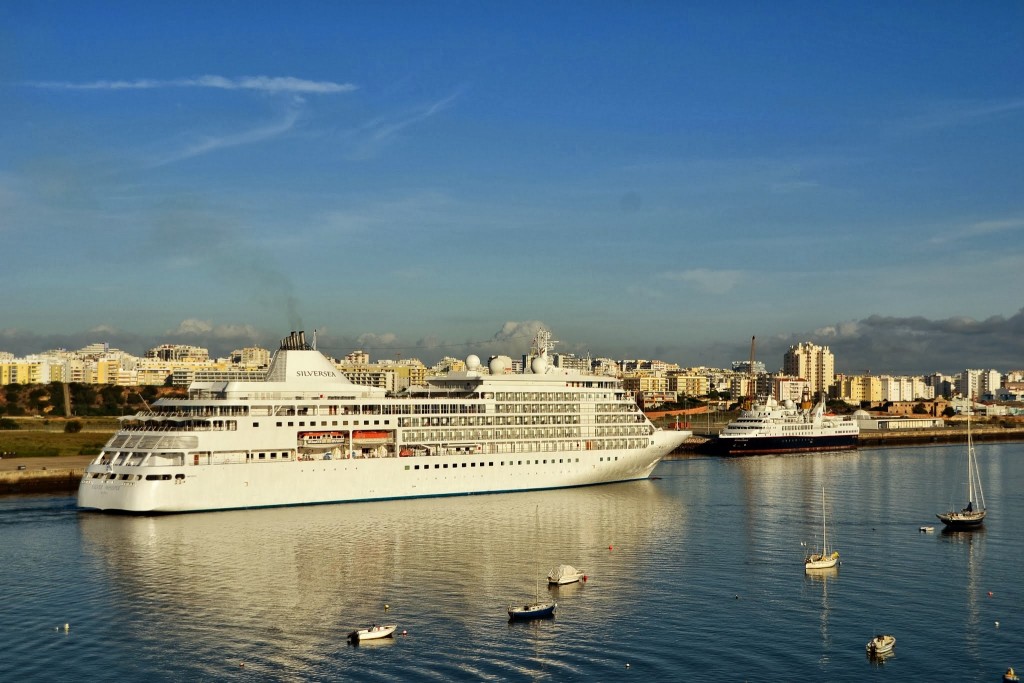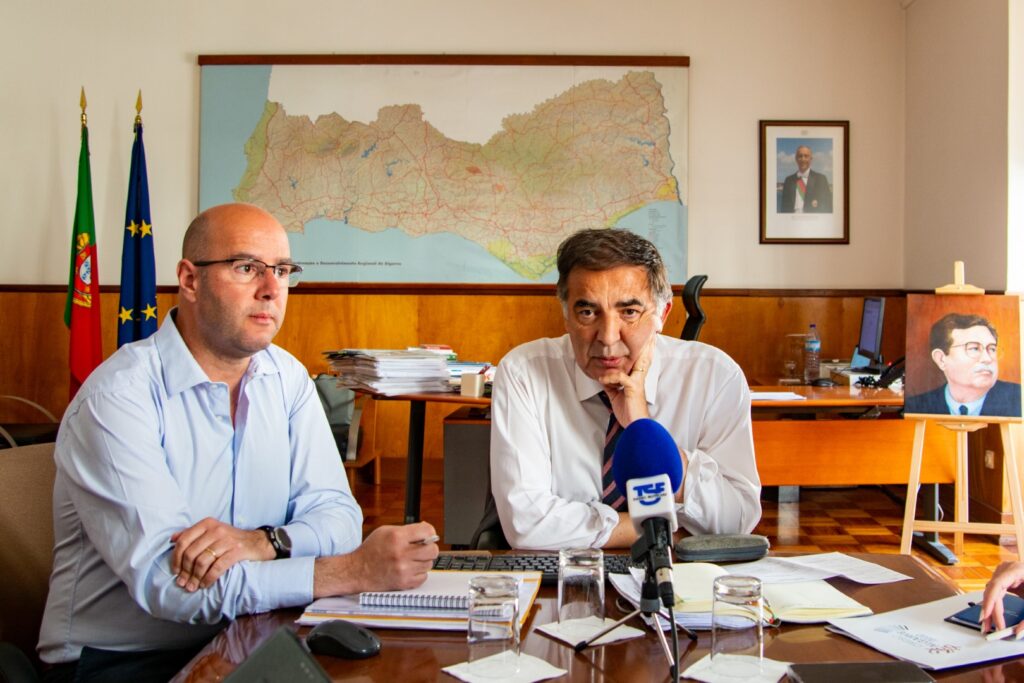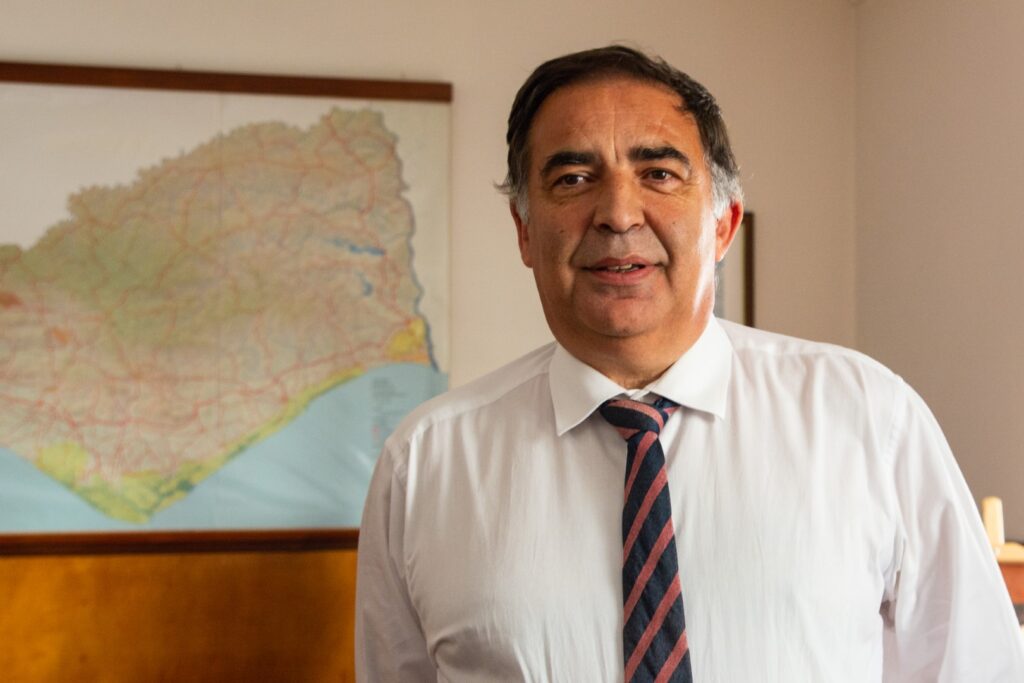An oncology centre, to be built in Parque das Cidades, which will work in conjunction with the future Hospital Central do Algarve, and a major commitment to sustainability, including the decarbonization of the Porto de Cruzeiros de Portimão and the metrobus, are the highlights of the Regional Program Algarve 2030, which was presented yesterday, Monday, in Faro.
José Apolinário, president of the Coordination and Regional Development Commission (CCDR) of the Algarve and of the Directive Commission of PR Algarve 2030, and Aquiles Marreiros, the executive member designated by the Government for this last structure, presented the general lines of this program, which has a total allocation of 780 million euros, more than double the money from the European Union received by the region in CRESC Algarve 2020 (318 million euros).
One of the most striking projects is that of a new oncology centre, to be installed in Parque das Cidades, in Faro/ Loulé.
«In the area of health, we had several choices: either we defended the mobilization of funds only for Primary Health Care or we bet on something differentiating. In this sense, we are fighting with the European Commission so that the program can finance a regional center dedicated to oncology», added José Apolinário, on the sidelines of the session.
“We are in a situation of discrimination in relation to the rest of the country. The Algarve has no answers in terms of oncology », and patients need « to have this treatment in Lisbon or Seville », he recalled.
In this sense, «the regional program will allow to leverage with European funds a bet of the State, of the National Health Service or of CHUA, that will allow to respond to the legitimate desires of our fellow citizens».
The Algarve CCDR, in the «difficult» negotiations with the European Union, worked on the basis of a proposal presented by the Centro Hospitalar Universitário do Algarve.
«The aim is to create a center, in conjunction with the future Central Hospital, that will allow responding to what, at the moment, is a situation of need in the region: we do not have structures to respond to the situation of treatment and follow-up of people who have cancer and, therefore, the region cannot remain in the background in terms of the fight against this disease», said the president of CCDR in the Algarve.
This entity entered, «indicatively, a first amount of 9 million euros», destined for the oncology centre, an amount that «can be increased as long as the functional program so indicates. Now, we are a transition region and we will always finance 60% of what is the total eligible amount for the project itself».

In relation to the past, the major change that will occur in the previous Community Support Framework (QCA), whose implementation is in the final stretch, for what is now taking the first steps, referring to the 2021-2027 period, is the weight of sustainability, to which almost half of the European Union funds destined for the region will be allocated in the coming years.
«Our big bet, in relation to CRESC Algarve 2020, is sustainability. In the previous table we had 318 million euros and the sums for sustainability represented less than 4% of the total. Now, we have 780 million euros and the sums for sustainability represent more than 45%», revealed José Apolinário.
Only for the two axes linked to this dimension – 2A “Sustainability and Biodiversity” and 2B “Mobility and Decarbonisation” – 368 million euros are earmarked, 47,3% of the Algarve 2030 total.
«The aim of sustainability is crucial and central to the Algarve region. In particular, the focus is on the theme of water and the Integrated Territorial Water initiative, to be built with Baixo Alentejo. We need to mobilize both public actors and companies for intelligent management and use of water», summarized José Apolinário.
But decarbonization will also have a relevant space, with the project planned for the Port of Portimão being the most striking.
«We mobilized 8 million euros for a project that has to be promoted by the Administration of the Ports of Sines and the Algarve, which aims to anticipate the decarbonization of the Port of Portimão by about 10 years», José Apolinário advanced.
«We, who present ourselves as a sustainable region, who have a growing volume of cruise ships calling at the Port of Portimão, understand that there must be an effort from everyone here, so that the ships, when they are docked, are connected to sources of clean energy and don't have their engines running», believes the president of CCDR do Algarve.
This will be «a very important contribution even to the qualification of this region as a tourist destination».
Still in the same strategic line, in the field of mobility, «a highlight goes to the metrobus, which is a project that we will build over the next year, and the other goes to the reinforcement of cycle paths».
«We have a great ambition, which is to have a cycle path that connects Vila Real de Santo de António to Sagres. In this Community Support Framework, around 40% of the cycle path will be completed and in the next funding period we will have to complete the cycle path between Vila Real de Santo António and Sagres, as well as between Sagres and Odeceixe, because that is also a way of respond, in a qualitative way, in terms of sustainable mobility in the region», he said.
As for the metrobus, as Sul Informação already managed, will serve the “triangle” Loulé-Faro-Olhão, with connections to Gago Coutinho Airport and the two campuses of Faro from the University of Algarve, Penha and Gambelas, and will be based on a dedicated and exclusive line bus solution.

In addition to sustainability, the other major strategic line of the Algarve 2030 is competitiveness. Three other axes of the Algarve 2030 will contribute to this goal – there are seven in all -, namely 1A “Innovation and Competitiveness”, 1B “Digital Connectivity” and 4A “Qualifications, Employment and Inclusion”.
José Apolinário and Aquiles Marreiros highlighted the importance of investment "in terms of productive innovation for companies" foreseen in the Regional Programme, which amounts to 257,1 million euros, 32,9% of the total.
«It is necessary to bring companies into the field of innovation and it is necessary to ensure greater transfer of knowledge between universities and companies. Investment in Research and Development in the Algarve represents only 0,48% of the total GDP generated in the region and we have to increase this contribution», urges the president of CCDR do Algarve.
Therefore, «productive innovation and investment in companies in terms of innovation is absolutely essential for the diversification of the economic base».
With the same objective in mind, that of creating a more resilient region and less dependent on the tourism sector, there will be a strong commitment to training human resources.
«There is no diversification of the economic base without a commitment to the qualifications of the population. (…) We have projects such as strengthening the UAlg campus in Faro, but also the university campus in Portimão», exemplifies José Apolinário.
A commitment will also be made to «reinforcement of higher education training», namely in Higher Professional Technical Courses (CTESP) and in short-term higher education courses, «because qualifications are a basic and essential condition to aim for greater diversification of the economic base».
Still in the area of education, funds will be allocated to Educational Territories of Priority Intervention.
The other two of the seven axes of the Algarve 2030 are 5A “Social and Territorial Cohesion” and 7A “Technical Assistance”.
After the launch of the first warnings of the Algarve 2030, at the end of March, the Steering Committee of the Regional Program is now preparing to open notices in the lines “Productive Innovation”, “Productive Innovation – Joint Innovation Projects” and “Educational Territories of Priority Intervention”.



















Comments